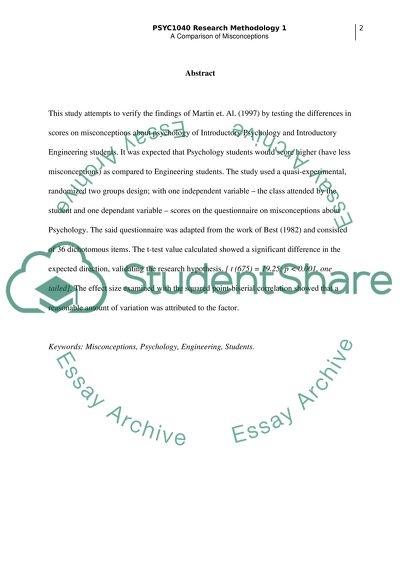Cite this document
(“Comparing Psychology Students and Engineering Students on their Lab Report”, n.d.)
Retrieved from https://studentshare.org/psychology/1422232-comparing-psychology-students-and-engineering-students-on-their-misconceptions-about-psychology
Retrieved from https://studentshare.org/psychology/1422232-comparing-psychology-students-and-engineering-students-on-their-misconceptions-about-psychology
(Comparing Psychology Students and Engineering Students on Their Lab Report)
https://studentshare.org/psychology/1422232-comparing-psychology-students-and-engineering-students-on-their-misconceptions-about-psychology.
https://studentshare.org/psychology/1422232-comparing-psychology-students-and-engineering-students-on-their-misconceptions-about-psychology.
“Comparing Psychology Students and Engineering Students on Their Lab Report”, n.d. https://studentshare.org/psychology/1422232-comparing-psychology-students-and-engineering-students-on-their-misconceptions-about-psychology.


